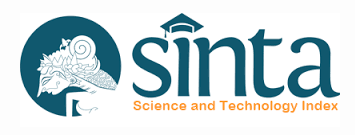ETIKA JURNALISTIK DALAM PENGEMBANGAN DAKWAH (EJDPD)
Abstract
Journalistic Ethics in Development of Da'wah is one of the most crucial used communication media between individuals and organizations across the world today, as a medium of sharing and disseminating information Islam. The advantages offered by Journalistic Ethics in Development of Da'wahis very effectively to convey the message of dakwah. Indeed, dakwah is one of the successful activities implemented through social media whenever the renowned da’ie also uses this method. Therefore, this paper reveals the role of social media (Journalistic) in disseminating the message of dakwah to the community. It focuses on the social media factors which affect publicizing Islamic information. Various aspects such as the effectiveness of the messages, the role of the da’ie, the medium used, the right approach, and the concept of amar ma’ruf nahi munkar are also peeled. This paper also discusses the need for social media to be used by the community in order to get more exposure toward Islamic messages. In fact, all parties should have the awareness on the importance of social media as a medium of communication for dakwah in this era of information.Journalistic Ethics is the subdivision of applied ethics dealing with the specific ethical principles and standards of media, including broadcast media, film, theatre, the arts, print media and the internet. Ethical standard refers to standard principles that encourage the greater values of trust, fairness and benevolence. Ethical standards may refer to responsibilities for some professionals.
Generally, the objective of the study is to know Journalistic Ethics in Development of Da'wah. The findings of this study will provide useful information about Journalistic Ethics in Development of Da'wah, that The researchers can conclude that Journalistic Ethics in Development of Da'wah have their own strength but are very keen in spreading da’wah and have their own strong fan base of followers in social media. Therefore, a preliminary conclusion can be made that social media, especially journalistic can be used as a platform for da’ies to spread da’wah and well-meaning messages.References
Anam, Faris Khoirul. Fikih Jurnalistik; Etika dan Kebebasan Pers Menurut Islam. Cet. I; (Jakarta: Pustaka Al-Kautsar, 2009).
Hamka, Rusjdi (peny.), Islam dan Era Informasi. Cet. I; (Jakarta: Pustaka Panjimas, 1989).
Ishak, Saidulkarnain. Jurnalisme Modern. Cet. I; (Jakarta: PT Elex Media Komputindo, 2014).
Ishwara, Luwi. Jurnalisme Ishwara. Cet. I; (Jakarta: PT Kompas Media Nusantara, 2011).
J. Anto & Pemilianna Pardede, Meretas Jurnalisme di Aceh. Cet. I; (Jakarta: Yayasan Obor Indonesia, 2007).
Junaedi, Fajar. Jurnalisme Penyiaran dan Reportase Televisi. Cet. II; (Jakarta: Kencana, 2015).
Kasman, Suf. Jurnalisme Universal; Menelusuri Prinsip-Prinsip Dakwah bi al-Qalam dalam Al-Qur’an.Cet. I; (Jakarta: Teraju, 2004)
_______.Pers dan Pencitraan Umat Islam di Indonesia; Analisis Isi Pemberitaan Kompas dan Republika. Cet. I; (Jakarta: Badan Litbang dan Diklat Kementerian Agama RI, 2010).
Muda, Deddy Iskandar. Jurnalistik Televisi; Menjadi Reporter Profesional. Cet. II; Bandung: PT Remaja Rosdakarya, 2005).
Mufid,Muhammad. Etika Filsafat Komunikasi. Cet. III; (Jakarta: Kencana Prenada Media Group, 2012).
Mustofa, Kurdi. Dakwah di Balik Kekuasaan. Cet. I; (Bandung: PT Remaja Rosdakarya, 2012).
Oramahi, Hasan Asy’ari. Jurnalistik Televisi. Cet. XIX; (Jakarta: PT Erlangga, 2015).
Prasetya, Heru. Sang Jurnalis. Cet. I; (Yogyakarta: Navila, 2005).
Prayitno, Budi (Penerj.). Etika Jurnalisme: Debat Global. Cet. I; (Jakarta: Institut Studi Arus Informasi & Kedutaan Besar Amerika Serikat, 2003).
Ruslan, Rosady. Etika Kehumasan; Konsepsi & Aplikasi. Cet. I; (Jakarta: PT Rajagrafindo Persada, 2001).
Samantho, Ahmad Y. Jurnalistik Islami; Panduan Praktis bagi Para Aktivis Muslim. Cet. I; (Bandung: Harakah, 2002).
Siregar, Ashadi, dkk., Bagaimana Meliput dan Menulis Berita untuk Media Massa. Cet. ; (Yogyakarta: Kanisius, 1998).
Sophiaan, Ainur Rofiq. Tantangan Media Informasi Islam: antara Profesionalisme & Dominasi Zionis. Cet. I; (Surabaya: Risalah Gusti, 1993).
Sudibyo, Agus. Politik Media dan Pertarungan Wacana. Cet. II; (Yogyakarta: LKiS Yogyakarta, 2006).
Suhandang, Kustadi. Manajemen Pers Dakwah; Dari Perencanaan Hingga Pengawasan. Cet. I; (Bandung: Penerbit MARJA, 2007).
Sukayat, Tata. Quantum Dakwah. Cet. I; (Jakarta: PT Rineka Cipta, 2009).
Tom E. Rolnicki, et al., Scholastic Journalism, yang dialihbahasakan oleh Tri Wibowo dengan judul “Pengantar Dasar Jurnalisme”. Cet. I; (Jakarta: Kencana Prenada Media Group, 2008).
WEB
http://cibengnews.blogspot.co.id/2012/11/pelanggaran-pelanggaran-kode-etik.html
Once an article was published in the journal, the author(s) are:
granted to the journal right licensed under Creative Commons License Attribution that allows others to share the work with an acknowledgment of the work's authorship. permitted to publish their work online in third parties as it can lead to wider dissemination of the work. continue to be the copyright owner and allow the journal to publish the article with the CC BY license receiving a DOI (Digital Object Identifier) of the work.





